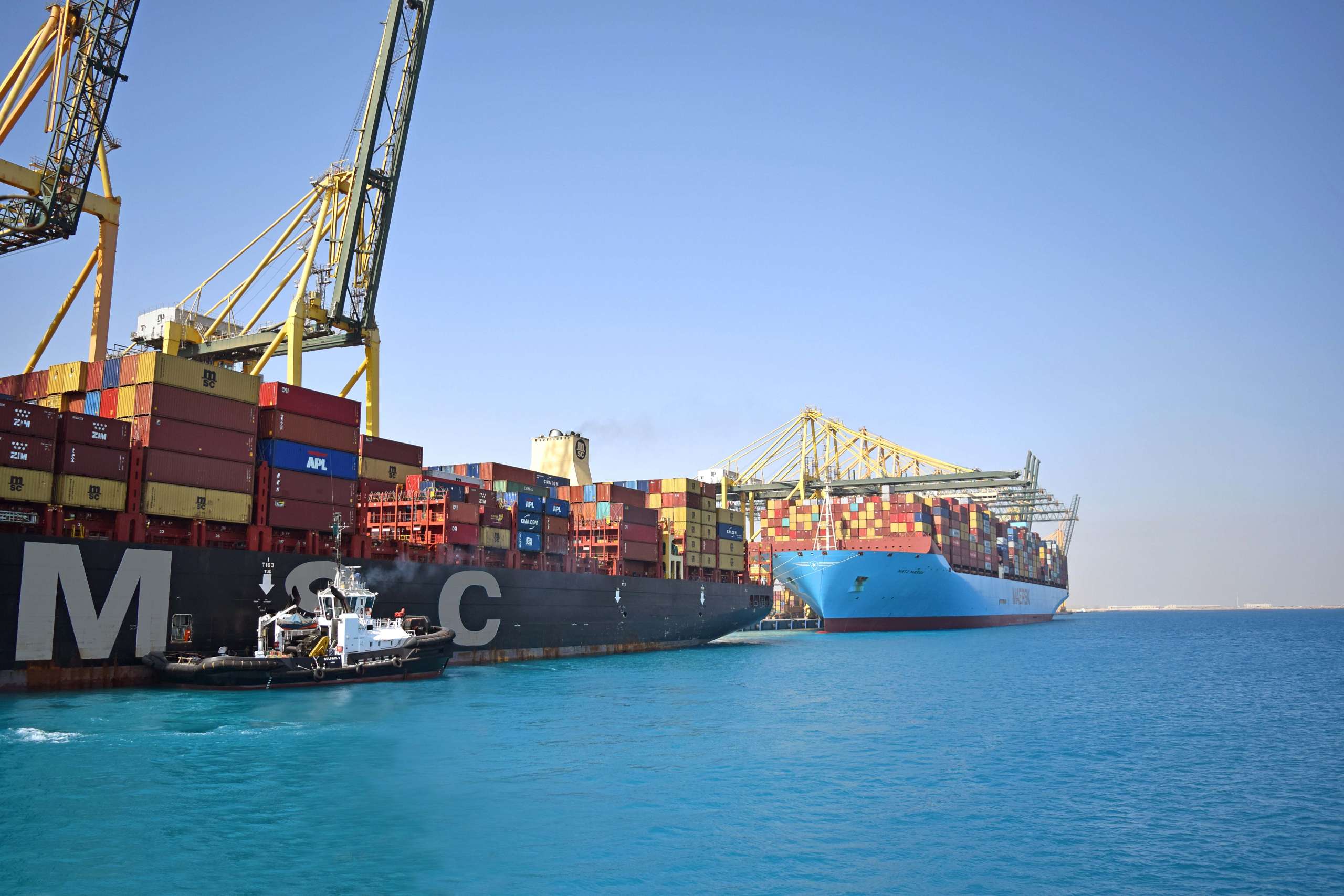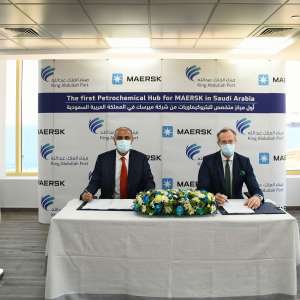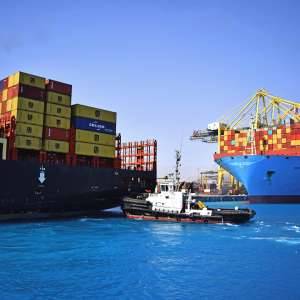King Abdullah Economic City, June 2021: Solidifying its leading position among ports in the Middle East, King Abdullah Port has been crowned the fastest growing seaport in the region during the first quarter of 2021, according to Alphaliner, the global leader in analyzing maritime transport data, port capabilities and the future of vessels and shipping route development. The Port improved its ranking globally by four points to be ranked 83rd in Alphaliner’s list of the 100 largest container ports in the world in 2020, as compared to 87 a year earlier.
Commenting on the achievement, Jay New, Chief Executive Officer of King Abdullah Port, said: “Since its establishment, King Abdullah Port has strived to set new benchmarks in the ports sector with its keen focus on enhancing its operational capabilities and service excellence. It is our unremitting commitment to delivering on our vision to become a world-class port that delivers long-term value to our stakeholders that inspired us to build up competent infrastructure and facilities. Our sustained outstanding performance in various global rankings and our stellar track record over the years are a testament to the success of these endeavors to firmly establish the port on the global logistics and trade map.”
“In addition to enabling us to remain resilient in the face of adversities brought about by the COVID-19 pandemic, our industry-leading capabilities strategically position us to play a key role in realizing Vision 2030 objectives. We have aligned our long-term strategy with that of the bold roadmap to raise the efficiency of Saudi Arabia’s logistics and trade sectors, transforming the Kingdom into a top global hub connecting Asia, Europe, and Africa, and boosting its non-oil exports,” Mr. New continued.
King Abdullah Port substantially raised its throughput to be ranked first in increase among the regional ports during the first quarter of the year when it reached 693,700 TEU, up 44.2% from 481,100 TEU recorded in Q1 2020. With a 29.7% rise, Aden Port ranked second, and Hamad Port ranked third growing 22.4%. Among the global top performers, the Port of Los Angeles / Port of Long Beach ranked first (42.7%) and Shenzhen Port came second (35.2%), followed by the Port of Ningbo-Zhoushan (25.1%).
The Alphaliner rankings follow King Abdullah Port’s recent achievement on the Container Port Performance Index (CPPI) for the year 2020. It ranked the Port second among the most efficient container ports in the world. Published by The World Bank and IHS Markit, CPPI is the first of its kind that scores ports against different metrics and is based on total port hours per ship call, standardized for different ship sizes and container moves per call.
Owned by the Ports Development Company, King Abdullah Port is the region’s first port to be owned, developed, and operated by the private sector. Ranked among the world’s leading ports in terms of growth and efficiency, the port emerged as one of the world’s top 100 ports within four years of operation. With its strategic location in King Abdullah Economic City – a modern city with a pro-business ecosystem and infrastructure – King Abdullah Port leverages the city’s advanced facilities and services, particularly the Industrial Valley, which has attracted many logistics projects as well as light and medium industries.
####
About King Abdullah Port
Strategically located on the Red Sea coast in King Abdullah Economic City, King Abdullah Port, ranked by The World Bank as the world’s second most efficient port in 2020, is the Middle East’s first privately owned, developed and operated port. Occupying an area of 17.4 km2, and enjoying close proximity to the key Saudi cities of Jeddah, Holy Makkah, Al Madinah and Yanbu, as well as its direct access to extensive transportation networks that facilitates the cargo transport through the kingdom and the rest of the region, the port is making an increasingly important contribution to the Kingdom’s global role in maritime trade and logistics. Once fully completed, King Abdullah Port will be capable of handling 25 million TEU, 1.5 million CEU and 25 million tons of clean bulk cargo annually.
With state-of-the-art infrastructure and processing facilities, the world’s deepest 18-m berths, multi-level expanding operations, in addition to a fully-integrated Port Community System, the Smart Gate system and multipurpose bonded and re-export zones, King Abdullah Port reflects the important role of the private sector in realizing Vision 2030.



